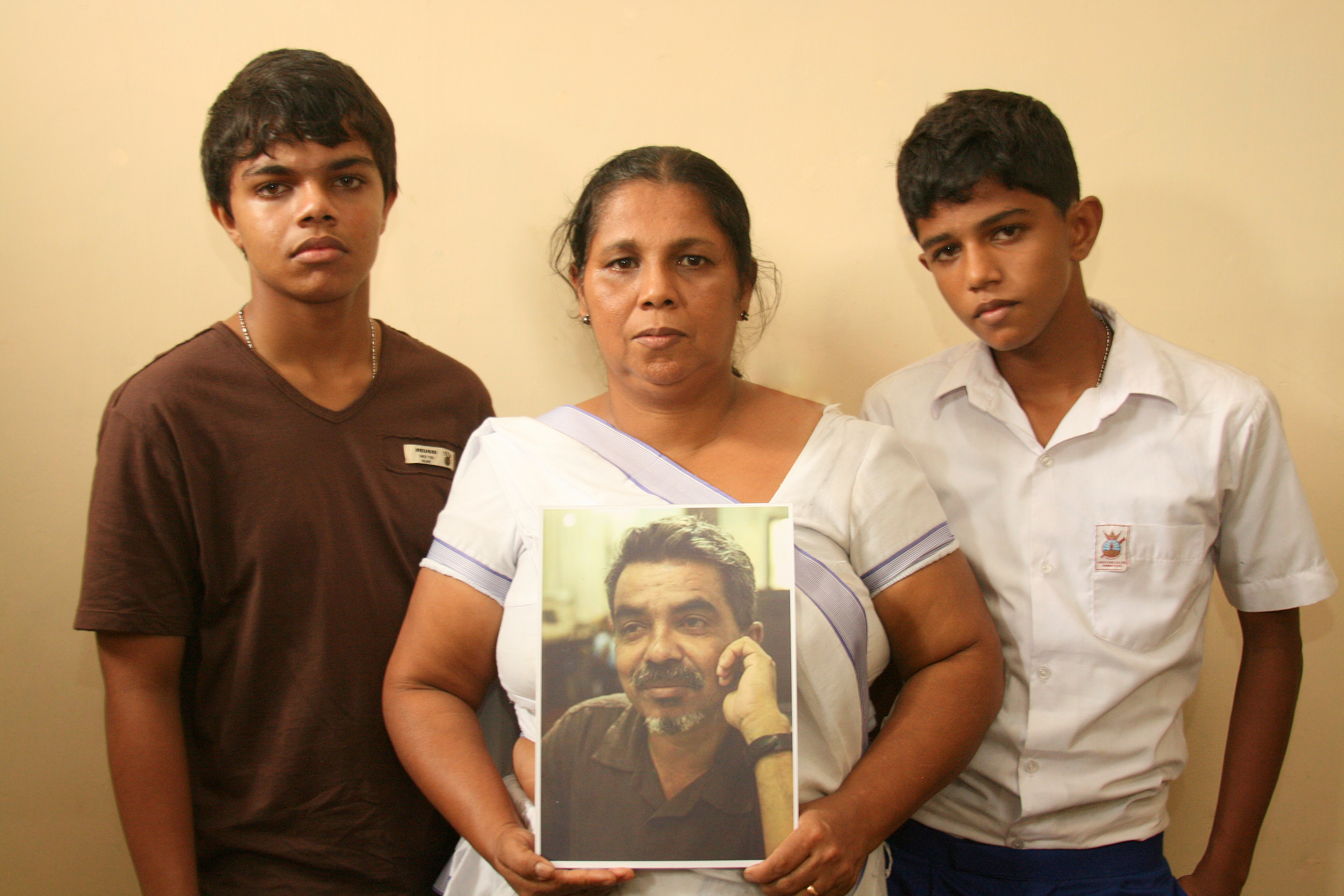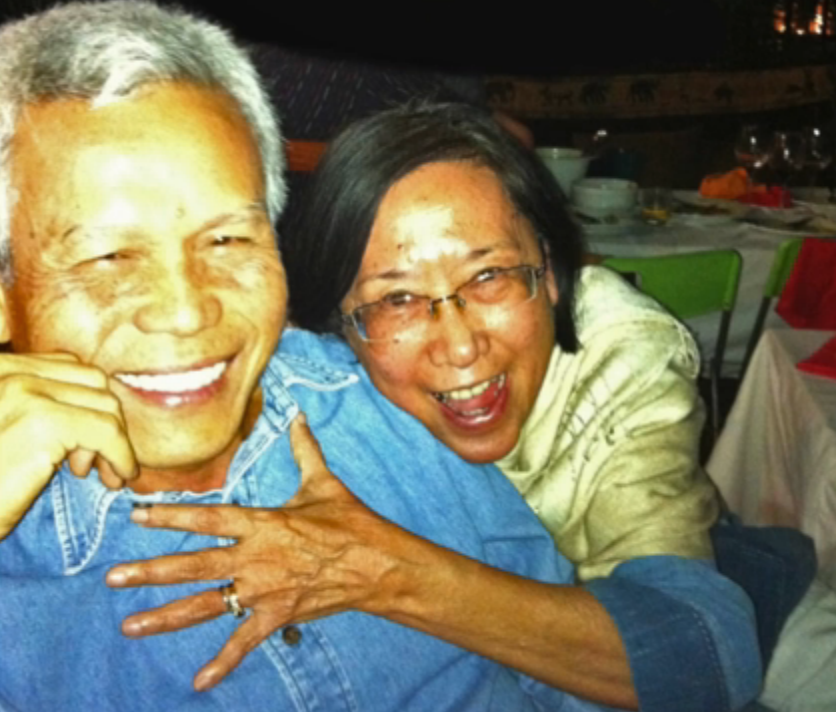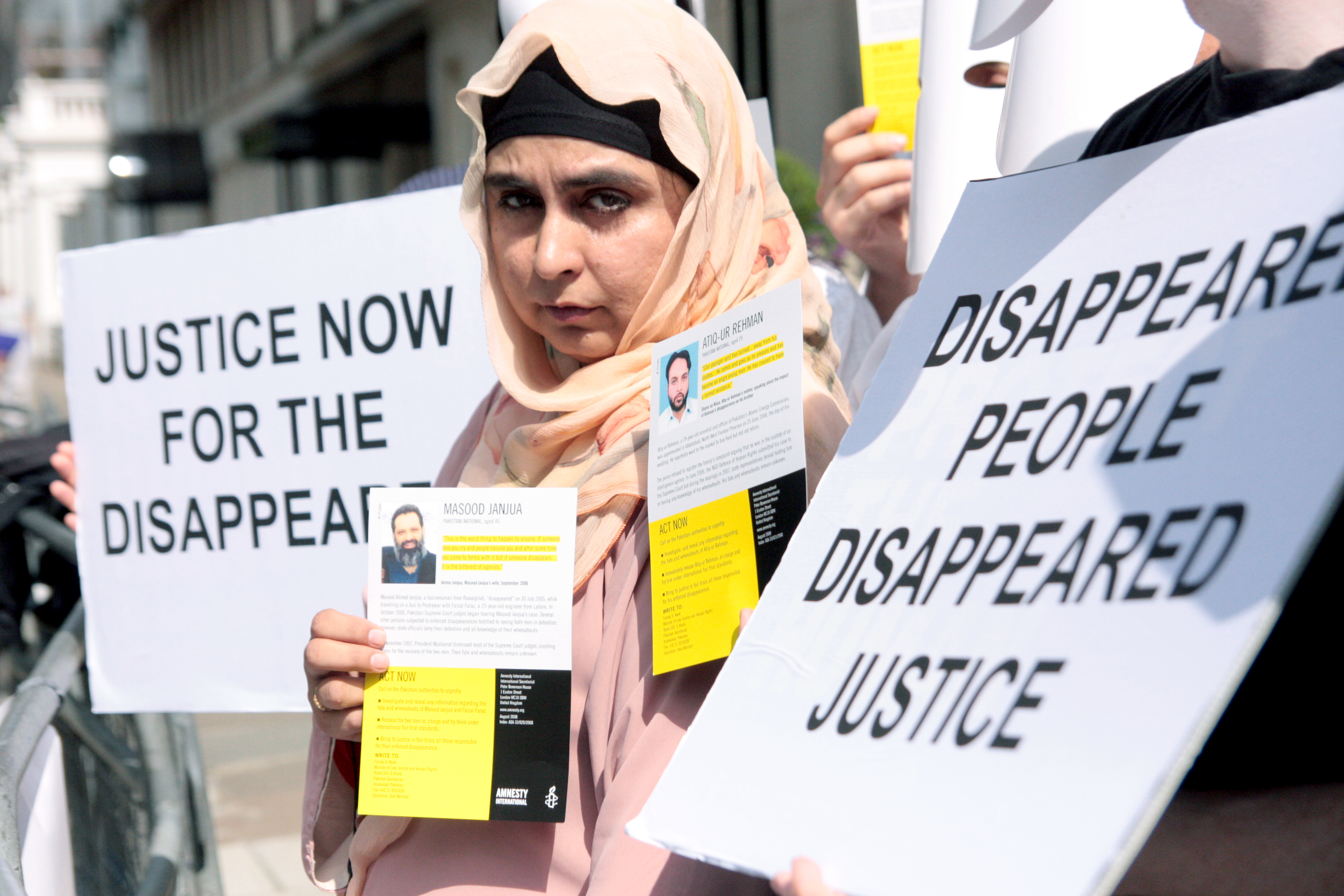
Sandya Eknaligoda wife of disappeared journalist Prageeth Eknaligoda with with their two sons Sathyajith Sanjaya and Harith Danajaya
The wife of a disappeared journalist said of her husband’s disappearance, “I think it’s one of the worst crimes in the world, making people disappear. It is not just the one person who disappears…the whole family is psychologically killed.” Yet the crime of enforced disappearance continues unabated in all regions of the world. Governments or their agents are making people “disappear,” repressing suspected adversaries, human rights defenders, witnesses and relatives of victims. Families of the disappeared suffer the anguish of not knowing, sometimes for years, whether their loved ones are being ill-treated or are even still alive.
Today, August 30, is observed by the world as the International Day of the Disappeared. Today, Amnesty International is calling on dozens of governments who use this tactic against their opponents to stop using enforced disappearances once and for all. SEE THE REST OF THIS POST

